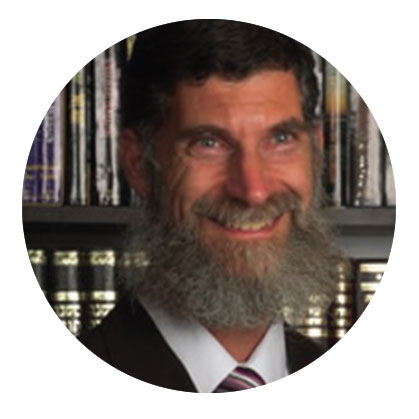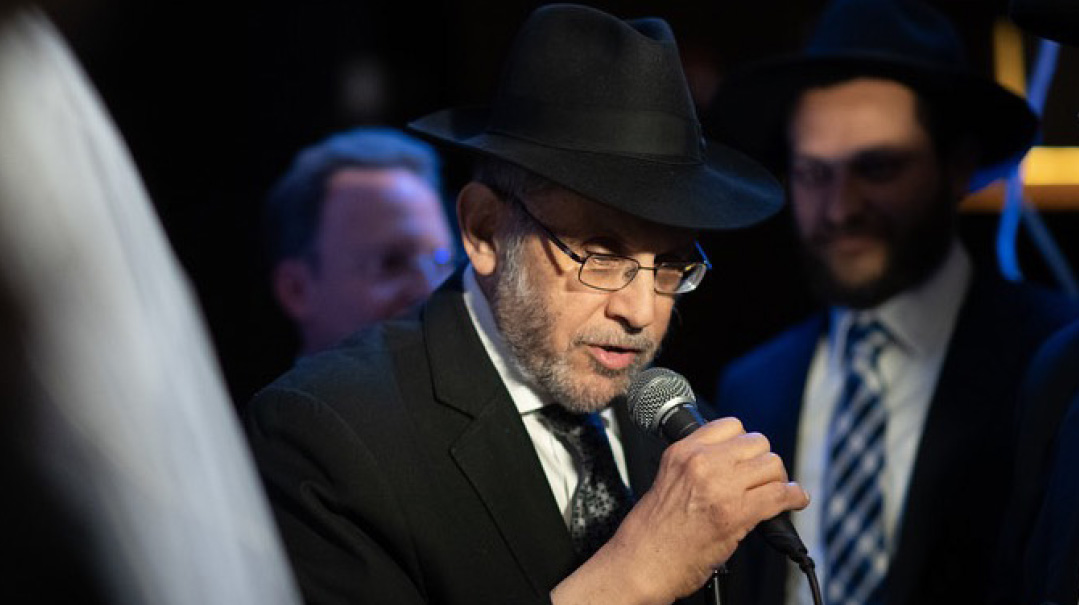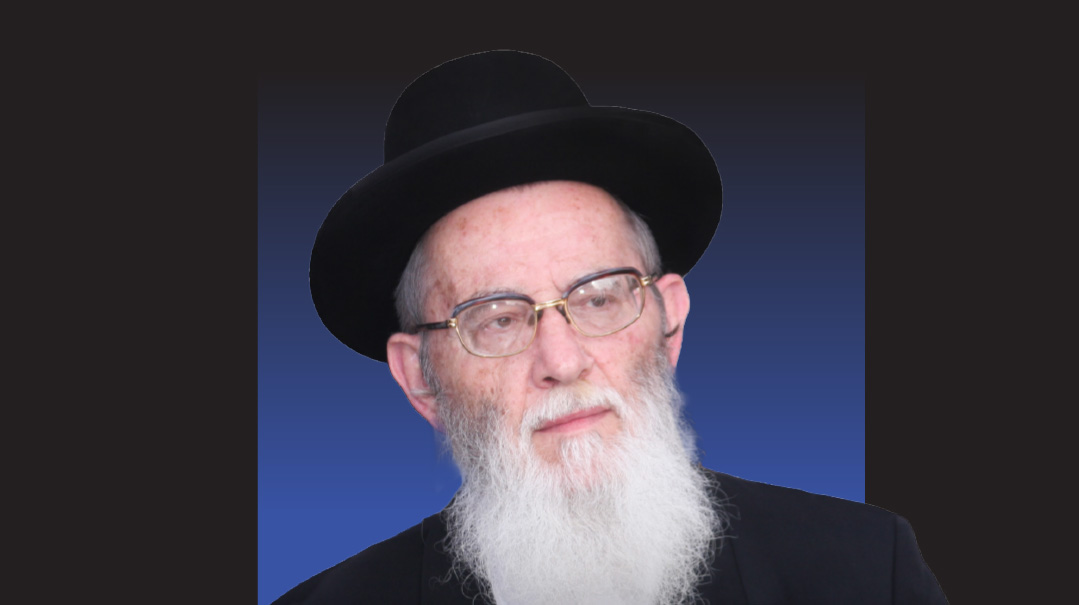No Kinder Words

In tribute to Rabbi Yehuda Kelemer a”h

IT was the way that Rabbi Yehuda Kelemer capitalized on every opportunity presented to him that, perhaps more than anything else, makes his life an important study even three years after his passing.
Rabbi Kelemer, rabbi of the Young Israel of West Hempstead for 38 years, was a man of influence that went way beyond his title, his shul, and even the broader West Hempstead community. Although he served as a local community rabbi, Yehuda Kelemer, considered the mara d’asra of all of West Hempstead’s growing kehillos, was a world-class talmid chacham. He spent several yeshivah years as a chavrusa to Telshe Rosh Yeshivah Rav Mordechai Gifter, later becoming an oft-called-upon expert in all issues related to marriage and divorce.
Although West Hempstead grew exponentially over the next few decades, and shuls opened on both sides of town, everyone still deferred to Rabbi Kelemer. Perhaps he was overqualified as a communal rav, but he nevertheless starred in that role, perhaps because of the way he exuded love for everyone and was reciprocally beloved.
In 2016, Rabbi Kelemer was hit by a truck in front of his shul and was unconscious for many days. He eventually recovered, but suffered residual issues from those injuries until his death at age 74 on 24 Teves (January 8), 2021.
Yehuda Kelemer was blessed with both a phenomenal head and premier chassidic lineage — two components that may not apply to every reader, but on average, we all confront an equal measure of serendipity. Rabbi Kelemer was the master of converting every small, seemingly insignificant event into one laden with significance.
When Yehuda was a day school student in the late 1950s, first in Miami and subsequently in Los Angeles (before either community boasted a yeshivah), his older brother Yisrael — then a student in Yeshiva University — felt that if he could get his brilliant younger brother to New York, he would be able to channel him to a yeshivah. Somehow Yisrael sensed that 12-year-old Yehuda would one day make his mark in the Torah world.
And so, Yisrael hatched a plan: The West Coast winner of the Chidon HaTanach (National Bible Contest) would be sent, all-expenses paid, to New York for the finals. Yisrael was convinced that if he could convince Yehuda to study, he would definitely win — and it worked!
With his eyes open to the East Coast, Yehuda first enrolled in Ner Yisroel in Baltimore and later moved to Telshe in Cleveland. Yehuda’s roommate in Telshe was the man who would become one of the most noted mashgichim of the generation, Rav Chaim Walkin, son of the famed gaon Rav Shmuel Walkin. Observing what a fine, considerate roommate he was, Chaim proposed the match to his sister, and the new couple left directly after sheva brachos for what was an unprecedented trip at the time — to learn in the Mirrer Yeshivah in Jerusalem. (In 1966, the Beis Yisrael neighborhood was on the border with Jordan, and popular neighborhoods near the Mir, such as Arzei Habira, Ramat Eshkol, and Sanhedria Murchevet didn’t yet exist — nor was that land even under Israeli sovereignty.)
The American yungerman took full advantage of learning at the feet of Rav Chaim Shmuelevitz and was one of the few who earned the trust and respect of Rav Yosef Shalom Elyashiv. Upon his return to the US, this rosh yeshivah-caliber talmid chacham decided to enter the rabbinate instead and would devote the remainder of his life to serving two Young Israel synagogues — first in Boston, and then, from 1983 (when former kehillah leader Rabbi Sholom Gold and his family made aliyah), at the Young Israel of West Hempstead, New York. He was known as the “Rabbis’ Rabbi” because of his mastery of halachah and uncanny ability to muster, as Rabbi J.J. Schacter labeled it, “the magic to make a psak work.”
Yet perhaps his true greatness was the sensitivity he employed when he interacted with the simpler, weaker people in his orbit.
In 1984, the OU created “Yachad,” a platform of inclusion between NCSY teens and young adults with developmental disabilities. The program was to be anchored through shabbatonim — always central to the NCSY experience.
Nascent Yachad was hunting for a community and rabbi to embrace them. They hit gold with the Young Israel of West Hempstead under the trailblazing guidance of Rabbi Kelemer.
The rabbi — whose congregation has grown to nearly a thousand members — was the first to go public with aliyos to the Torah to Yachad members, and even on occasion shared his pulpit with them. Over the course of Shabbos morning, the rabbi greeted each and every Yachad member personally, and when it came time to deliver his sermon, he scanned the shul and with great flair welcomed each Yachad participant by name.
A fellow named Steve related that his grandfather had a long battle with Alzheimer’s, which often resulted in hospitalization. The hospital was quite a distance from anyone in Steve’s family, but still the grandchildren arranged weekly shifts to visit with him. One time, Steve was only able visit his grandfather late at night, only to find that he already had a guest at his bedside: Rabbi Kelemer had made the long drive in order to provide company for the elderly gentleman, who had been non-verbal for many years. Not only had Rabbi Kelemer not mentioned to anyone in the family that he was going to visit, the grandfather wasn’t even a congregant.
Rabbi Kelemer quickly got up and excused himself, making room for the grandson, but not before sharing that he felt obligated to display kavod for a Holocaust survivor. He even thanked Steve for allowing him to come.
After the rabbi departed, the nurse on the overnight shift told Steve that the man with the dark suit and beard had been there for hours, holding the patient’s hand and quietly sitting together with him.
A woman named Deena recounted that her elderly mother was in Columbia Presbyterian Hospital in Manhattan when Hurricane Sandy hit. Deena had no way to get into the city because of the severe weather, and apologetically called her mother, telling her that due to the hurricane, it would be impossible to get there.
Her mother replied, “It’s okay, Rabbi Kelemer is here with me.”
Deena demanded to speak with the rabbi, asking how in the world he got into the city.
“I happened to be in the neighborhood,” he responded so nonchalantly that it actually rang true, “and I’m keeping your mother company singing Modzhitz zemiros to her, so no need to worry.”
One gentleman related that one Erev Shabbos, after being hospitalized for three weeks, he was forbidden to either eat or drink as he had to undergo a complicated test. He insisted that his wife go home to be with the children for Shabbos. The man was wheeled back to his room after the test, and Rabbi Kelemer was there waiting for him.
He could not comprehend how the rabbi could do this kindness with Shabbos so imminent.
“I wanted you to see a familiar face when you returned from the test,” the rabbi explained.
“I have never been so moved,” the man acknowledged with the greatest sincerity, “but how will you get home?”
Rabbi Kelemer smiled. “Obviously,” he said, “you’ve never seen me drive!”
One Shabbos morning, Rabbi Kelemer walked to a different shul to wish a family mazel tov on their son’s bar mitzvah. When he arrived, the rabbi of that synagogue was delivering a sermon, so Rabbi Kelemer waited outside so as not to cause a commotion entering the shul.
Meanwhile, a woman from a different community entered the building looking confused. When she spotted a gentleman standing outside the sanctuary, she tapped his arm to ask him if this was the location of the bar mitzvah.
Without flinching, Rabbi Kelemer answered affirmatively, and then — as the faithful shepherd he was — asked her name.
The woman replied and then asked Rabbi Kelemer his name.
“Jordan,” he said, giving his legal name to avoid identifying himself as the rabbi of the community.
“Jordan what?” she wanted to know.
“Jordan Kelemer,” he mumbled, hoping not to blow his cover.
“Oh, I heard there’s a really nice rabbi in this community named Rabbi Kelemer. Do you know him?”
The Talit family had been preparing for their son Joseph’s bar mitzvah for a year, but all the arrangements and purchases were for naught with the onset of Covid. The Shabbos of the bar mitzvah, which was intended to be an invested affair with family and relatives joining from all over, ended up being just the nuclear family in their own home.
There was no minyan, no reading from the Torah, and no one to listen to Joseph’s well-prepared — indeed, memorized — sermon.
Joseph’s mother took the decorations she’d purchased to enhance the synagogue hall and placed them throughout the house, while the family did their best to make the most of the day they had so looked forward to.
Shabbos afternoon, in the middle of a downpour registering somewhere between a cloudburst and a microburst, there was a knock on the door. This was the early stage of the pandemic, when no one went visiting — and certainly not when it meant braving such nasty weather. Michal Talit went to answer and saw what looked like an apparition: There was Rabbi Kelemer, who’d just been released from rehab after being flattened by that runaway truck. He was there in the midst of the downpour, having barely recuperated and struggling to remain at 180 degrees with his walker. Dumbstruck, Michal could not emit a single word in reaction to the most touching gesture of her lifetime.
That was okay, because the rabbi did all the talking. Despite the mega-precipitation, Rabbi Kelemer’s face was sunny as he told them, “Good Shabbos. I just wanted to wish mazel tov and tell you how proud we are of Joseph.” When it came to people’s feelings, he was the ultimate rainmaker.
Everyone from the burgeoning community of West Hempstead was profoundly and personally affected by Rabbi Kelemer’s sensitivity in conveying Torah values, but it went even further. When Rabbi Kelemer was hospitalized, he had to suffer the care of a not-very-experienced nurse. Every time she attempted to draw blood, it was agony — she was unable to execute a hit in over a dozen tries. Family members at his bedside were well-attuned to their father’s manner, and could tell how much pain he was in, but the nurse was oblivious, as Rabbi Kelemer was smiling and kept complimenting her at her perseverance and noble efforts.
“You are such a wonderful, patient nurse!” he told her.
A former West Hempstead resident related how, after almost 20 years of marriage, she was considering covering her hair and made an appointment with Rabbi Kelemer in the hope that he could provide some literature to help her better understand the mitzvah.
“Rabbi Kelemer gave me a couple of articles, but then told me, ‘You know that it’s very hard for a woman to cover her hair.’ I was so overwhelmed with his reaction,” she related. “What I expected him to say to me was, ‘Wow, it’s so special that you want to take this mitzvah upon yourself.’ But, instead, he validated the reality of the decision I had made. I will never forget that conversation, which has impacted so many other decisions in my life.” —
Hanoch Teller is the co-author of the newly released If Not Higher: Stories and Insights of Rabbi Yehuda Kelemer ztz”l (Feldheim).
(Originally featured in Mishpacha, Issue 994)
Oops! We could not locate your form.







